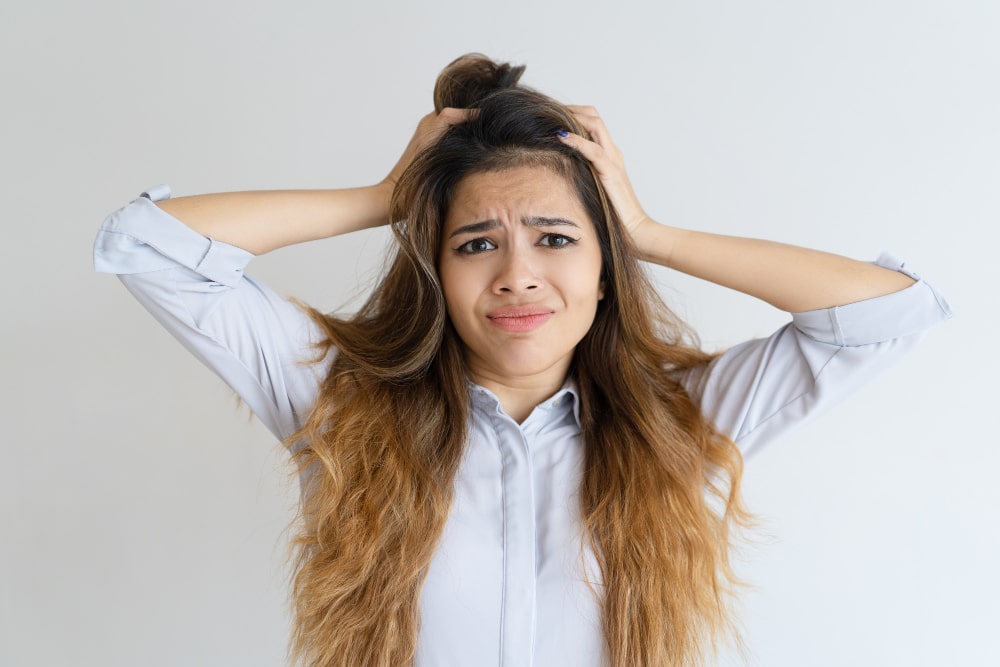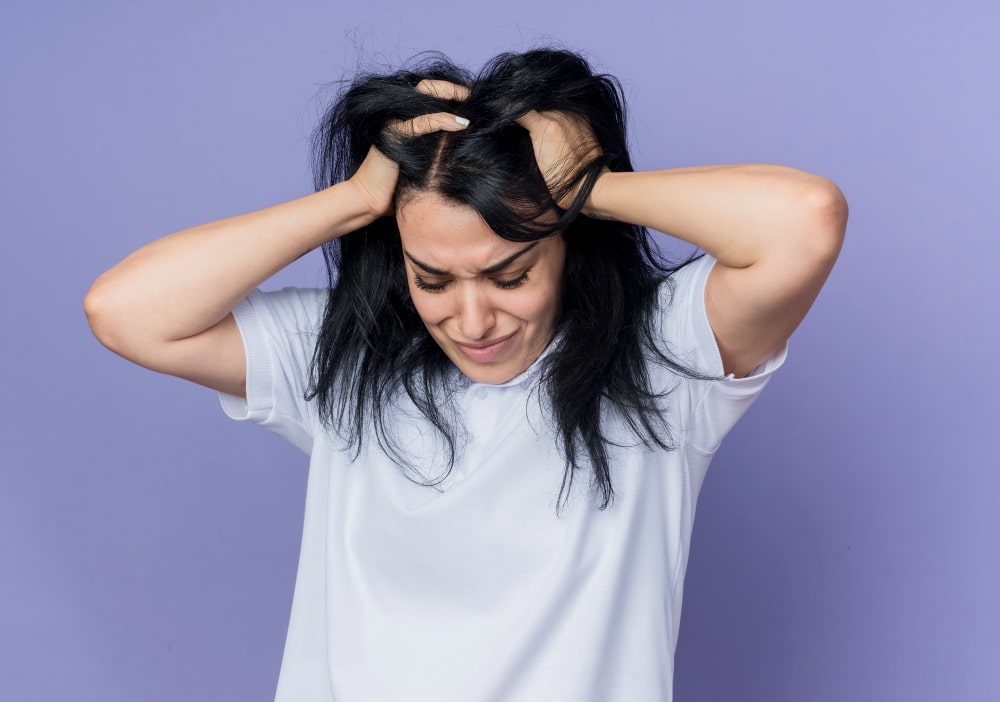Hair loss is an issue that affects people of all ages, genders, and backgrounds. But for those living with lupus, a chronic autoimmune disorder. This problem can be much more severe than it is for the majority of people. Lupus occurs when the immune system malfunctions and attacks healthy cells and tissue instead of protecting them. It associates with a wide range of symptoms, including hair loss, among many other potential side effects. In this article, we will explore Does Lupus Cause Hair Loss, the link between lupus and hair loss, discuss different types of hair loss from lupus, and look at how the condition can be managed to minimize hair loss. We will also discuss research updates on lupus and hair loss. Lifestyle changes and medical treatments to help those with this condition.
The Link Between Lupus and Hair Loss
Does lupus cause hair loss?
Yes, lupus can cause hair loss. Hair loss is a common symptom of lupus, affecting up to 50% of people diagnosed with the disease. This type of hair loss is known as alopecia, which is an autoimmune-related condition where the body’s immune system attacks its hair follicles, resulting in patchy or complete hair loss. This type of hair loss can appear on any area of the body that has hair. It can generally start suddenly for those with lupus.
The exact cause of hair loss from lupus is still unknown. However, it is thought to be due to the autoimmune reactions resulting from the condition. These reactions cause inflammation in the body, which then causes further damage and affects the normal function of healthy cells and tissue, including hair follicles.
Read More: Can Dry Scalp Cause Hair Loss? Everything You Need to Know
Understanding Autoimmune Reactions
Autoimmune reactions are when the body’s immune system mistakenly attacks its cells and tissue. This is what happens with lupus, where the immune system becomes hypersensitive and begins attacking healthy cells instead of protecting them. When this happens, inflammation occurs in response to these attacks, leading to further damage and disruption in normal cell function.
In the case of lupus, this can lead to hair loss as the inflammation caused by autoimmune reactions affects the hair follicles, resulting in patchy or complete hair loss.

Types of Hair Loss Associated with Lupus
The type and level of hair loss associated with lupus varies from person to person. Some may experience patchy hair loss, while others may suffer from complete baldness. The most common type of hair loss associated with lupus is known as alopecia areata. It causes bald patches to appear on the scalp or other areas of the body.
Other types of lupus-related hair loss include telogen effluvium and anagen effluvium. Telogen effluvium is when the hair follicles prematurely enter a resting stage, causing hair thinning. Anagen effluvium occurs when the hair follicles are damaged by chemotherapy or other lupus-related medications, resulting in complete or partial baldness.
Read More: Can Low Vitamin D Cause Hair Loss? How to Maintain Level
Factors Influencing Hair Loss in Lupus Patients
There are various factors that can influence the severity of hair loss in those with lupus. These include the type of medication they may be taking to treat their condition, as some medications, such as corticosteroids. It can cause further damage to hair follicles and lead to increased hair loss.
Other factors influencing hair loss include lifestyle choices, such as smoking. It can increase the risk of hair loss from lupus. Additionally, stress and dietary choices may also be contributing factors to increased hair loss for those with lupus.
Lupus Medications and Hair Loss
Medications for treating lupus can have various side effects, including hair loss. Corticosteroids are the most commonly used medications to treat lupus. However, they can cause further damage to hair follicles and increase the risk of hair loss. Other types of medications, such as cytotoxic drugs, can also increase the risk of hair loss in those with lupus.
It’s important to speak to your doctor if you are experiencing any side effects from your lupus medication or are concerned about hair loss. They can advise on the best course of action and whether an alternative treatment may suit you.
Read More: Can Wearing a Hat Cause Hair Loss: Everything You Need to Know
Coping with Lupus-Induced Hair Loss
It can be difficult and emotionally challenging to cope with hair loss, especially for those with lupus. It’s important to remember that this is a common symptom of the condition, and there are ways to cope and manage it.
The first step is to speak to your doctor about your concerns and any potential treatments that may help minimize hair loss. Your doctor can also provide advice on lifestyle changes that you can make to help reduce the risk of hair loss, such as quitting smoking and getting regular exercise.
Additionally, various types of natural treatments and supplements can help with lupus-induced hair loss. These include vitamin B6, niacin, biotin, and turmeric, which may all be beneficial in helping to minimize hair loss associated with lupus. It’s important to note, however, that it is best to speak to your doctor first before trying any natural treatments.
Research Updates on Lupus and Hair Loss
Research into lupus and hair loss is ongoing to better understand the condition and how it can treat or manage more effectively. One recent study found that biotin supplements can help reduce hair loss in those with lupus, although further research is still needed to fully understand the effect of this supplement.
Other studies are looking at how lifestyle changes such as quitting smoking and reducing stress levels may minimize the risk of hair loss for those with lupus. As more research conduct, it hopes that more effective treatments and strategies for managing lupus-induced hair loss will develop.
It’s important to remember that lupus is a complex condition, and everyone experiences it differently. The best thing you can do is to speak to your doctor if you are concerned about any symptoms related to the condition, such as hair loss. They will be able to provide the best advice and support so that you can cope more effectively with lupus-induced hair loss.
Read More: Foods That Cause Hair Loss: Everything You Need to Know
Additional Resources
If you have been diagnosed with lupus and are concerned about hair loss, there are various resources available to help. The Lupus Foundation of America provides comprehensive information on lupus and its symptoms and resources to help those living with the condition.
There are also various support groups and online forums that can provide advice and support for those affected by lupus-induced hair loss. These can be a great source of information and emotional support, especially when you feel overwhelmed or isolated due to your condition.
Hair loss can be a difficult symptom to cope with, especially if it’s due to lupus. By taking the time to educate yourself on the condition and speaking to your doctor about the best course of action, you can better manage your symptoms and start feeling more confident about your hair and overall health.
Conclusion
In conclusion, hair loss is a common symptom of lupus and can be difficult to cope with. It’s important to talk to your doctor about the best action for managing your condition and minimizing any related symptoms, such as hair loss. Additionally, various natural treatments may help reduce or minimize the effects of hair loss from lupus. With the right support and lifestyle choices, those with lupus can better manage their condition and start feeling more confident about themselves.
Read More: Can Creatine Cause Hair Loss? Understanding the Connection
FAQs
Lupus-related hair loss can be permanent depending on the severity of the hair loss and the underlying cause. However, it is possible for some people to experience regrowth of their hair after making lifestyle changes or taking medications to manage their lupus.
There is no guarantee that lupus medications will reverse hair loss. As each person’s experience with the condition and its symptoms is unique. However, some people may find that their hair loss improves or stops altogether once they start taking lupus medication.
It is difficult to directly link stress to hair loss in lupus as there are many factors at play. However, it believes that high stress and anxiety levels can exacerbate lupus symptoms, which may include hair loss.

